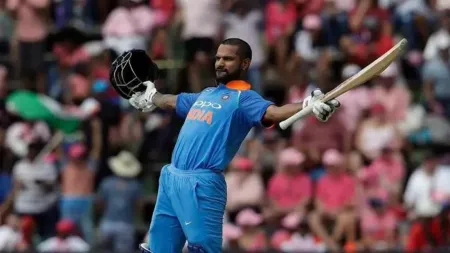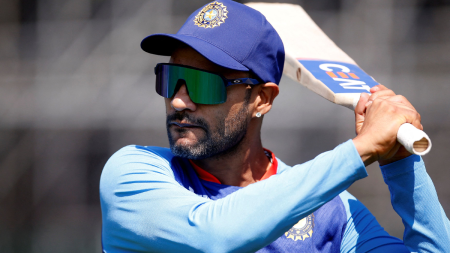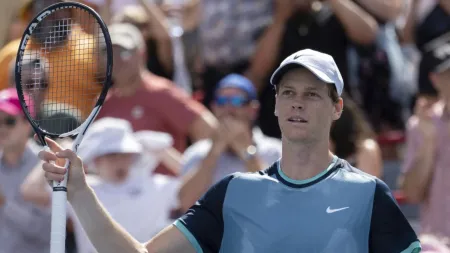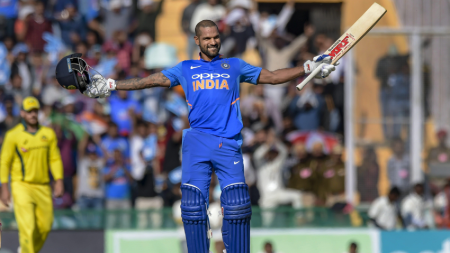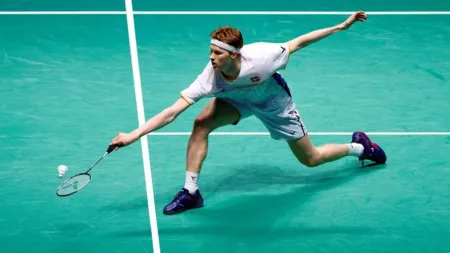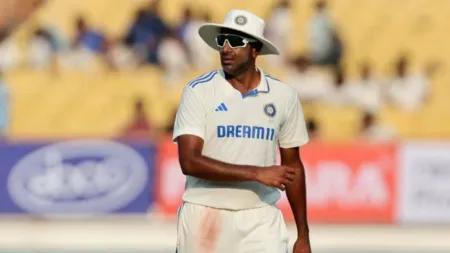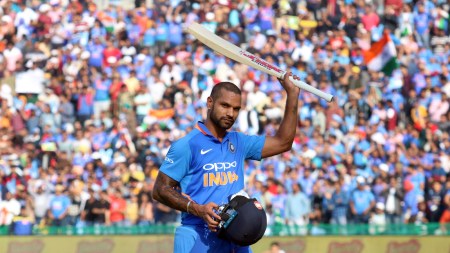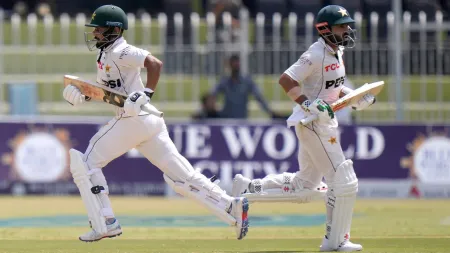Elegant and effortless as his style of play may be, Jannik Sinner’s rise to World No. 1 has not automatically meant he has become a crowd favourite. Unassuming in his manner and introverted by nature, he lacks the personal charisma and the talent behind a microphone that some of his contemporaries have.
Coincidental to his rise has also been the emergence of a cross-generational rivalry between Carlos Alcaraz and Novak Djokovic that has been played on the biggest of stages, and contains the narrative richness to captivate the casuals and die-hards in equal measure. Even as he won the Cincinnati Masters last week to announce himself as one of the favourites for the US Open, starting Monday, the spotlight fell firmly on the two seeds below him. And overnight, that changed.

News of the 23-year-old Italian failing two dope tests in March, testing positive for anabolic steroid clostebol, and narrowly escaping a ban by convincingly explaining his case of contamination, dropped last week to cynicism and speculation from the tennis cognoscenti.
That the World’s No. 1 tennis player failed two dope tests, carried on playing on the tour for four ensuing months as his innocence had been up for trial in the background, and that none of this was known to any of his opponents or fans, is, by any account, a sensational story. It has become the dominant theme of the build up to the year-ending Slam at Flushing Meadows.
The United States Tennis Association (USTA) is keen not for it to be though. According to a news report in The Guardian, as Sinner faced public scrutiny for the first time since that news became public at this pre-tournament press conference, the USTA-hired moderator, Gary Sussman, attempted to shut down questions on the subject after Sinner answered the first. It was the 23-year-old that fronted up in front of the media – he agreed to take as many questions that came his way, undeterred about his innocence.
“In my mind I know that I haven’t done anything wrong,” he said. “I had to play already months with this in my head, but just (reminding) myself that I haven’t done really anything wrong. I always respect these rules, and I always will respect these rules of anti-doping. Just obviously a relief for myself having this result.”
The announcement from the International Tennis Integrity Agency (ITIA) that an independent tribunal and scientific experts have cleared Sinner of wrongdoing was immediately met with scepticism. Players argued that in several cases in the past, innocence has been proven in a long, drawn-out process at great personal expense that Sinner has evaded thanks to his status as the best player in the world part of a concerted push from the sport’s establishment seeking new superstars as the old ones have faded. Even those that are eventually deemed to be innocent, are not afforded the privilege of having their failed dope tests hidden from the public until they are cleared.
Provisional suspensions are usually served for long periods. Sinner did too; two of them for a few days each that conveniently fell during rare out-of-competition weeks.
“Every player who gets tested positive has to go through the same process,” he added, when asked about the perceived preferential treatment that some of his colleagues have alleged. “There is no shortcut, there is no different treatment, they are all the same process.”
Additionally, likelihood of his explanation has come under the scanner. Sinner argued that his fitness trainer, Umberto Ferrara, purchased an over-the-counter spray to treat a cut on the finger of his physio, Giacomo Naldi. Naldi then proceeded to give massages and treatments to Sinner without gloves, and due to open wounds on his feet and back due to a skin condition, accidentally transferred the steroid into his bloodstream.
Experts hired by the ITIA have found enough reason in this explanation to clear the World No. 1, but Sinner has found enough fault with the two trainers, part of the close-knit support group around him, to dismiss them from his team.
“We made an incredible job, bringing a lot of success and then having a great team behind me. Now, because of these mistakes, I’m not feeling that confident to continue with them. The only thing I just need right now, just some clean air,” he said on Saturday.
The unhappiness of the players speaks of their mistrust of the governing bodies of this sport and their lack of transparency; of their jadedness about how the rules are different for those at the top either due to clout or financial might. These concerns are unlikely to be addressed during the US Open, and the authorities, as Sussman’s actions suggest, are keen to refocus the attention to tennis.
Sinner would like the same.
His greatest hurdle will not be who is across the net. He has already shown composure to maintain his level and a good standard of tennis at the same time as his innocence was on trial, but facing inner demons is one thing, public scrutiny of this kind another.
Players at Sinner’s stage are bound to have this trial by fire but few do so with such negativity swarming around them. How he navigates this may determine his tournament and the rest of his season.
Disclaimer: The copyright of this article belongs to the original author. Reposting this article is solely for the purpose of information dissemination and does not constitute any investment advice. If there is any infringement, please contact us immediately. We will make corrections or deletions as necessary. Thank you.
